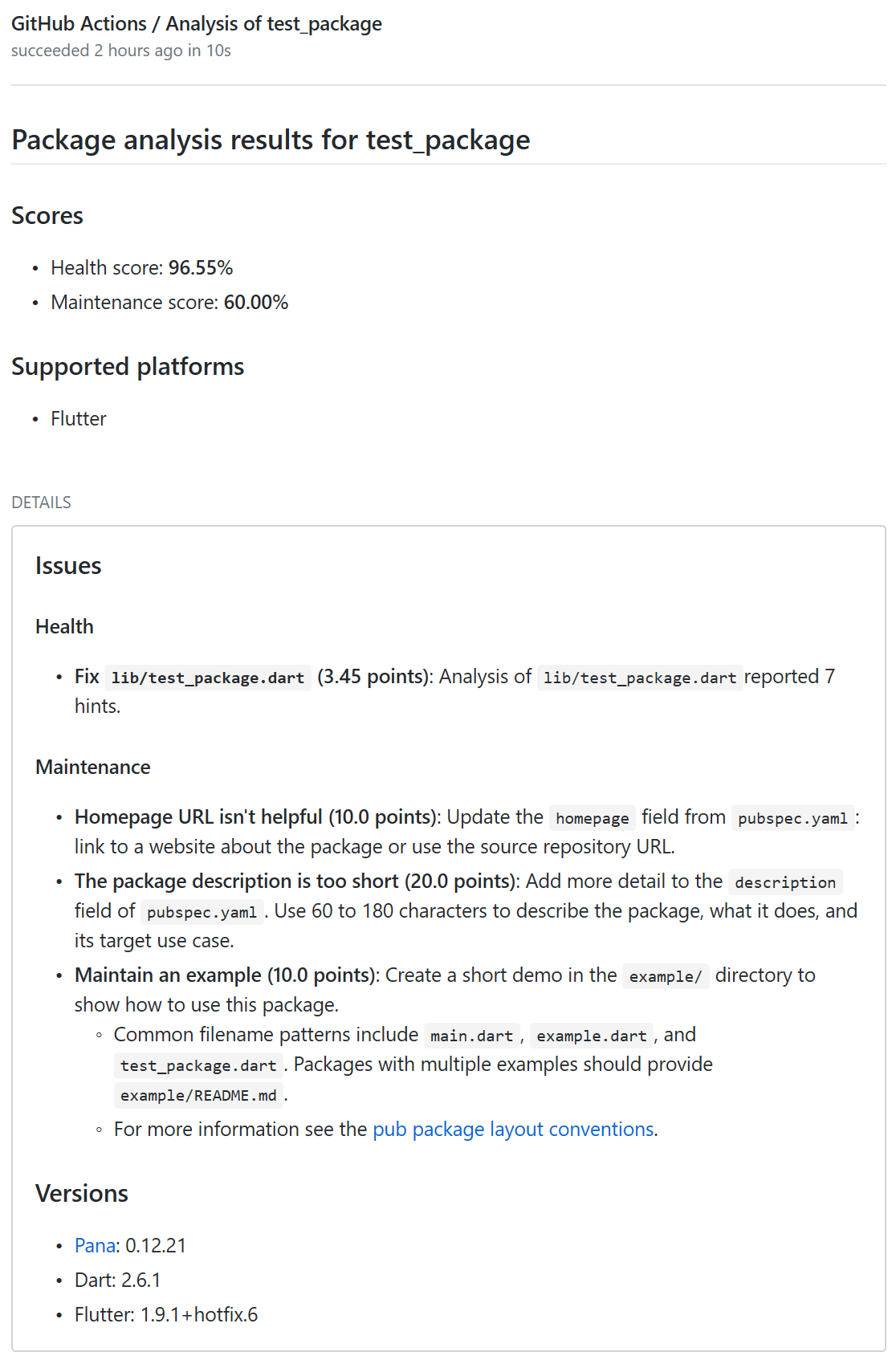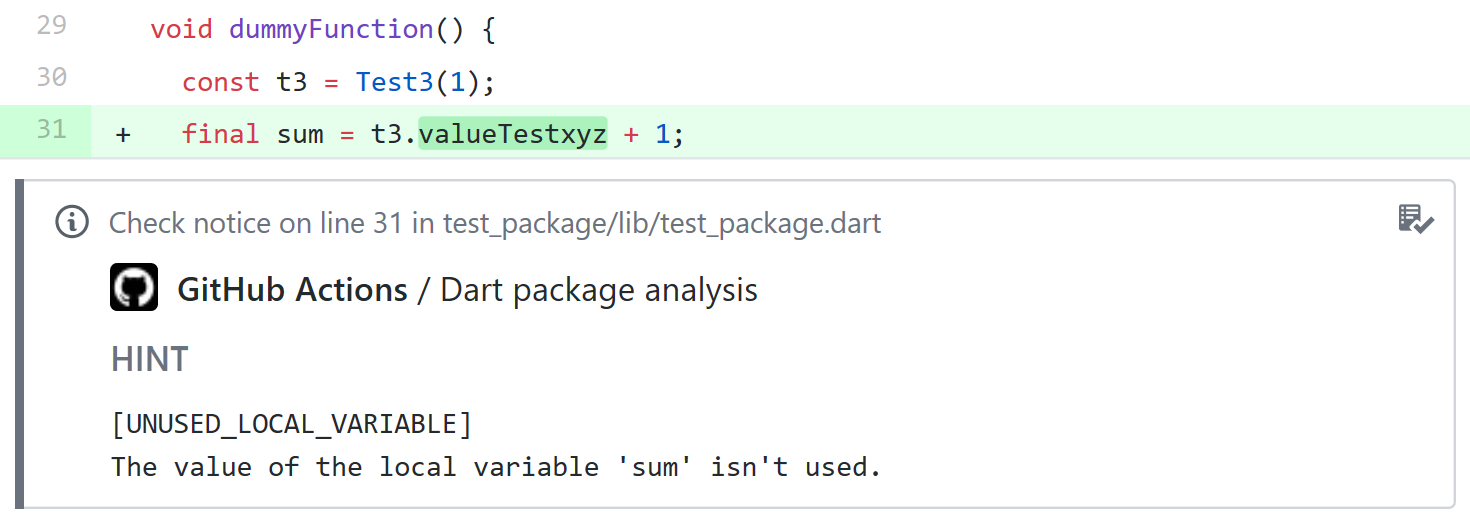This action uses the pana (Package ANAlysis) package to compute the score that your Dart or Flutter package will have on the Pub site, and annotates your code, with suggestions for improvements.
This package, amongst other things:
- validates the code by performing static analysis with dartanalyzer,
- checks code formatting with
dartfmtorflutter format(detected automatically), - checks for outdated dependencies,
- validates the
pubspec.yamlfile (dependencies, description's length...), - checks for required files (
CHANGELOG,README,examplefolder...) - ...
The pana package gives two scores: a health score and a maintenance score. Those scores are set in the outputs of this action, so you can use them in the next steps of your workflow (see below).
You must include the actions/checkout step in your workflow. You don't need to run pub get or build a Dart container before.
Here's an example:
name: Example workflow
on: [push, pull_request]
jobs:
package-analysis:
runs-on: ubuntu-latest
steps:
- uses: actions/checkout@v2 # required
- uses: axel-op/dart-package-analyzer@stable
with:
# Required:
githubToken: ${{ secrets.GITHUB_TOKEN }}
# Optional:
relativePath: packages/mypackage/
minAnnotationLevel: infogithubTokeninput is required to post a report on GitHub. Note: the secretGITHUB_TOKENis already provided by GitHub and you don't have to set it up yourself.- If your package isn't at the root of the repository, use
relativePathto indicate its location. - If you only want to see annotations for important errors, try to change the
minAnnotationLevelparameter to another value. Accepted values areinfo,warninganderror. Defaults toinfothat posts all the annotations.
By default, this action uses the Dart SDK embedded in Flutter. It may not be the latest version of the Dart SDK. To use the latest version of the full Dart SDK, append /with-full-sdk to the path of this action.
In the example above, you would edit line 10 like this:
- uses: axel-op/dart-package-analyzer/with-full-sdk@stableThis will slightly increase the time to pull the container that this action uses.
The health score and the maintenance score are set as outputs of this action. If you set an id for the step of this action, you can use these outputs in the next steps of your workflow, as illustrated in this example:
name: Example workflow
on: [push, pull_request]
jobs:
package-analysis:
runs-on: ubuntu-latest
steps:
- uses: actions/checkout@v2
- uses: axel-op/dart-package-analyzer@stable
id: analysis # set an id for the current step
with:
githubToken: ${{ secrets.GITHUB_TOKEN }}
# You can then use this id to retrieve the outputs in the next steps.
# The following step shows how to exit the workflow with an error if a score is below 100:
- name: Check scores
run: |
MAINTENANCE_SCORE=${{ steps.analysis.outputs.maintenance }}
HEALTH_SCORE=${{ steps.analysis.outputs.health }}
if (( $(echo "$MAINTENANCE_SCORE < 100" | bc) )) || (( $(echo "$HEALTH_SCORE < 100" | bc) ))
then
echo "Scores are not both equal to 100"
exit 1
fi
